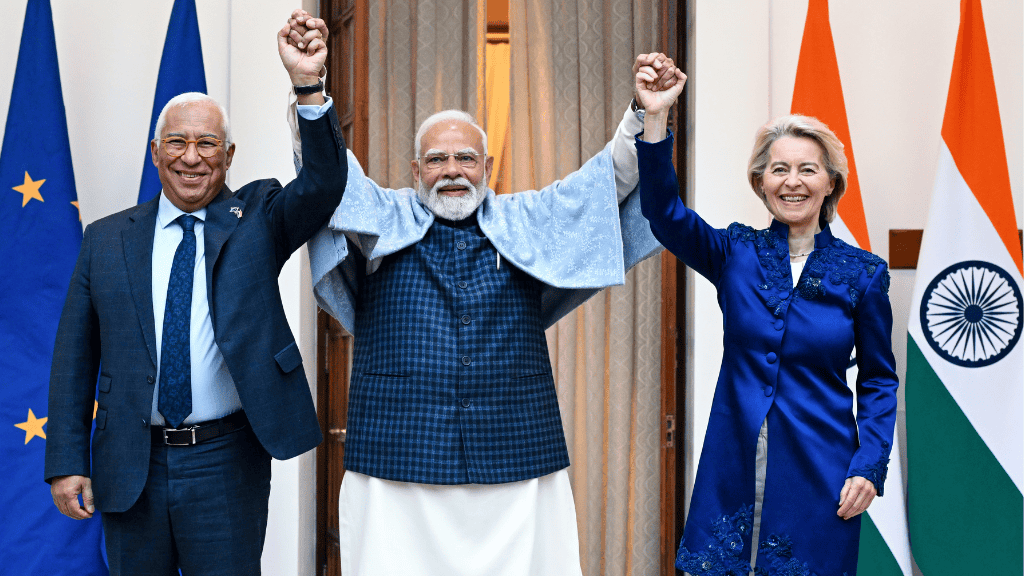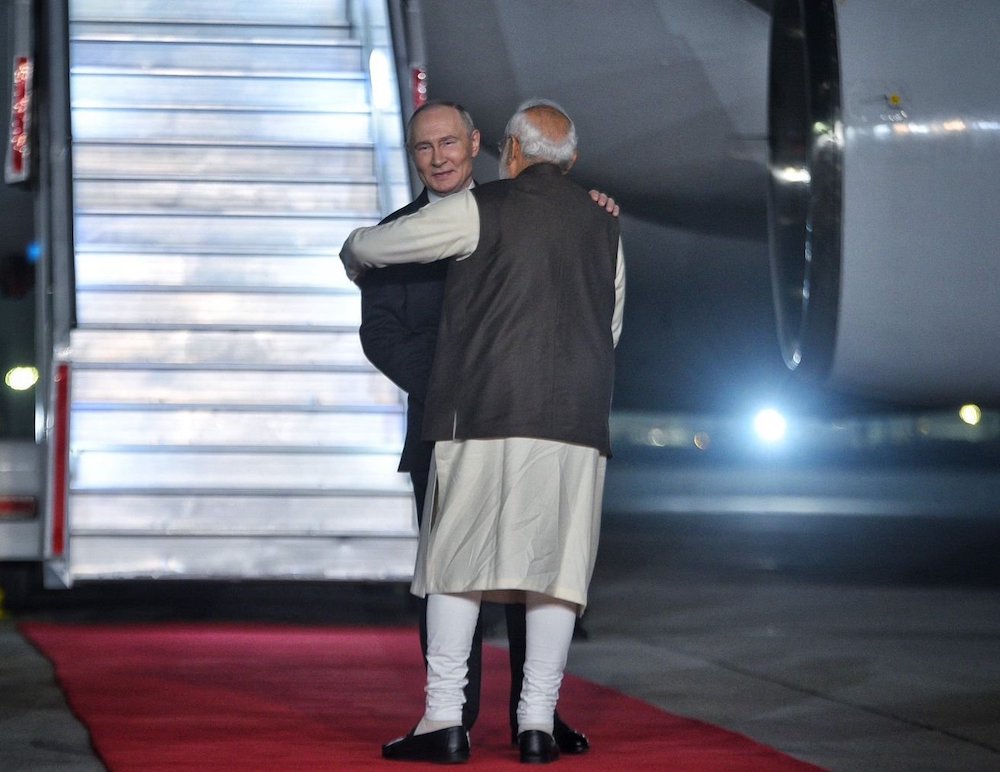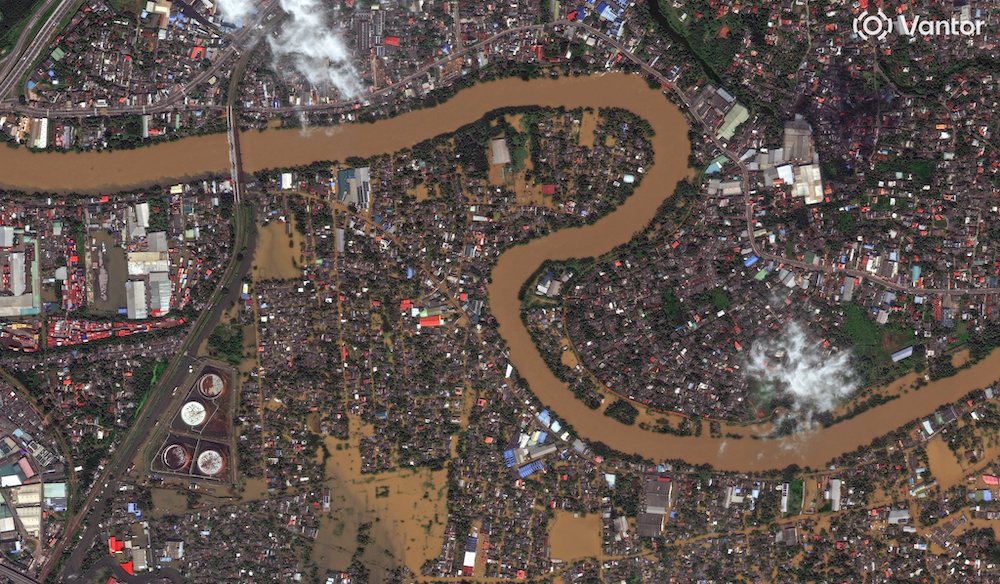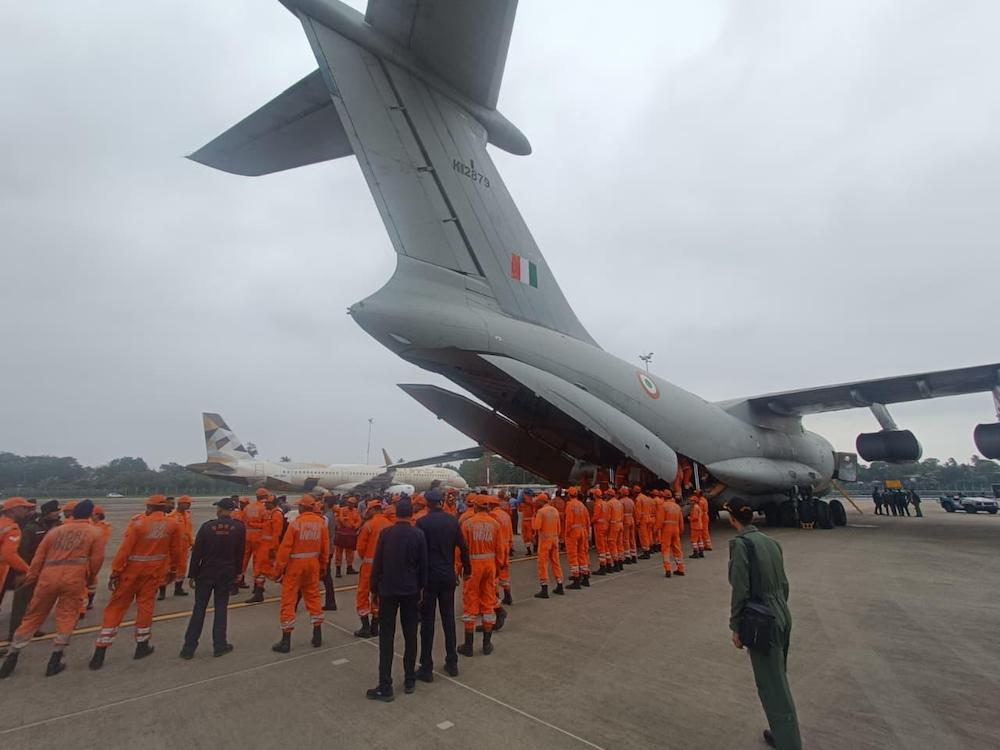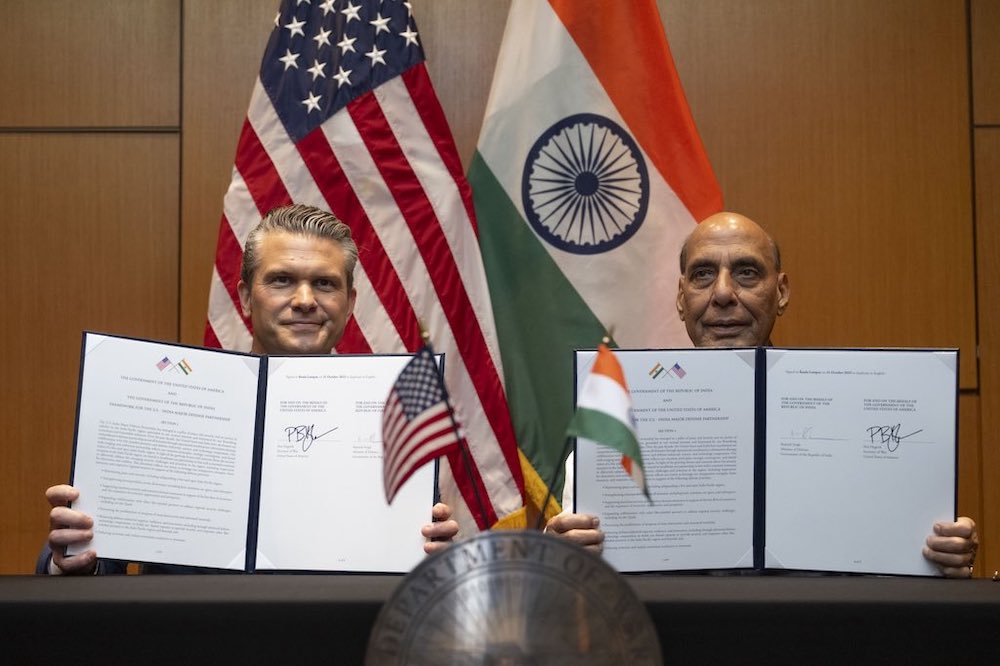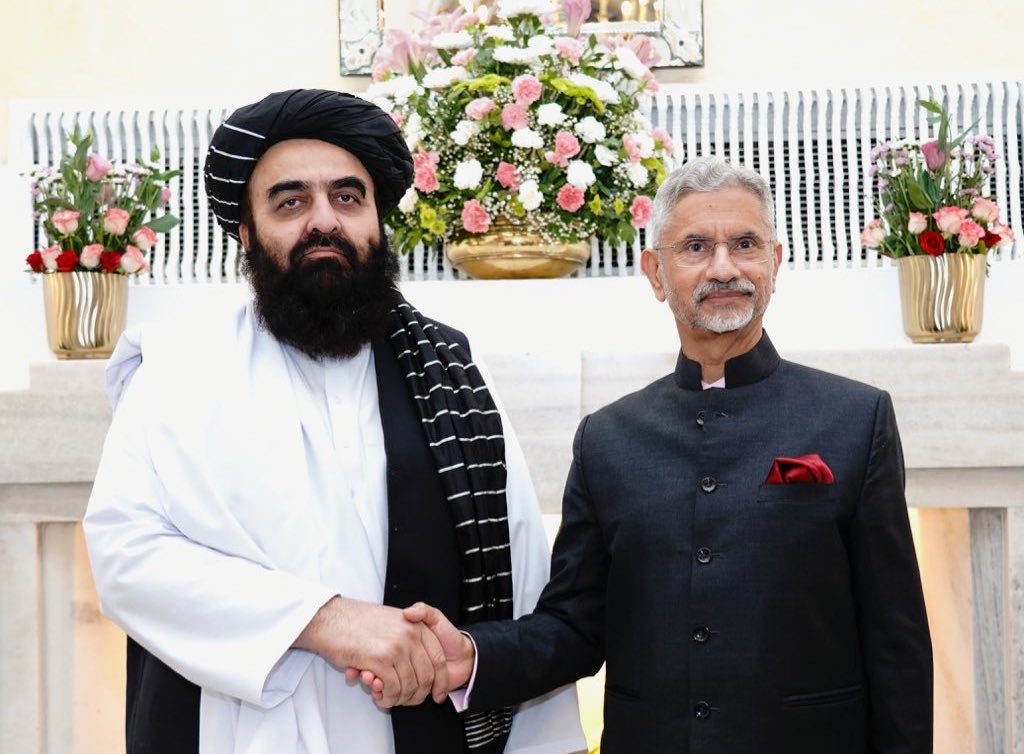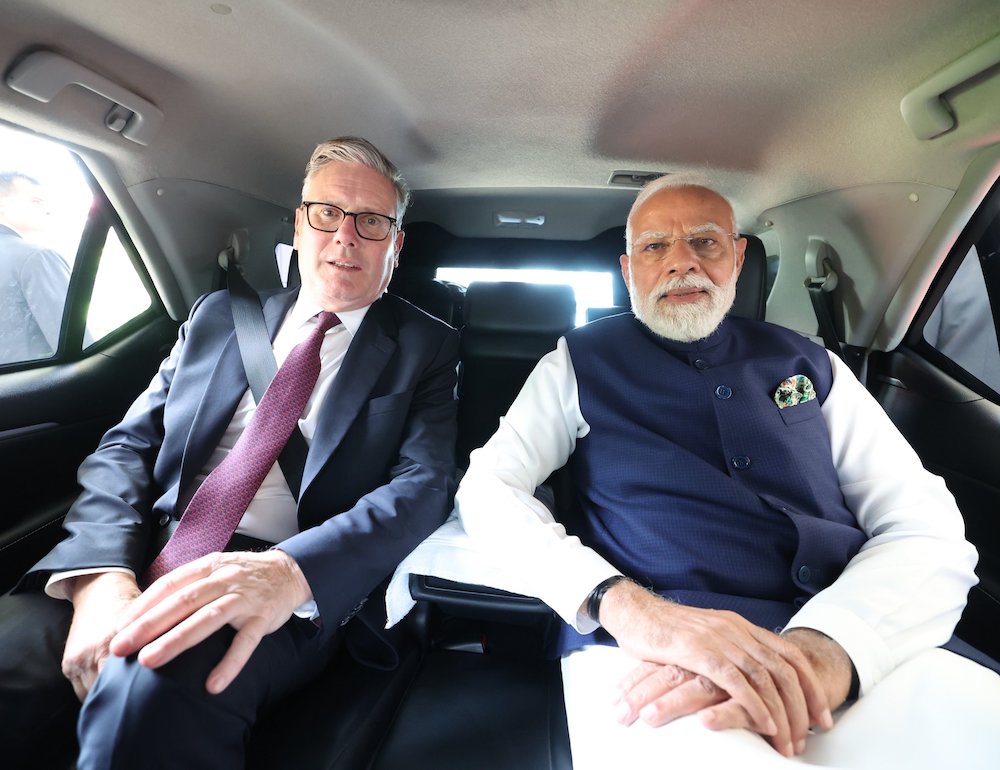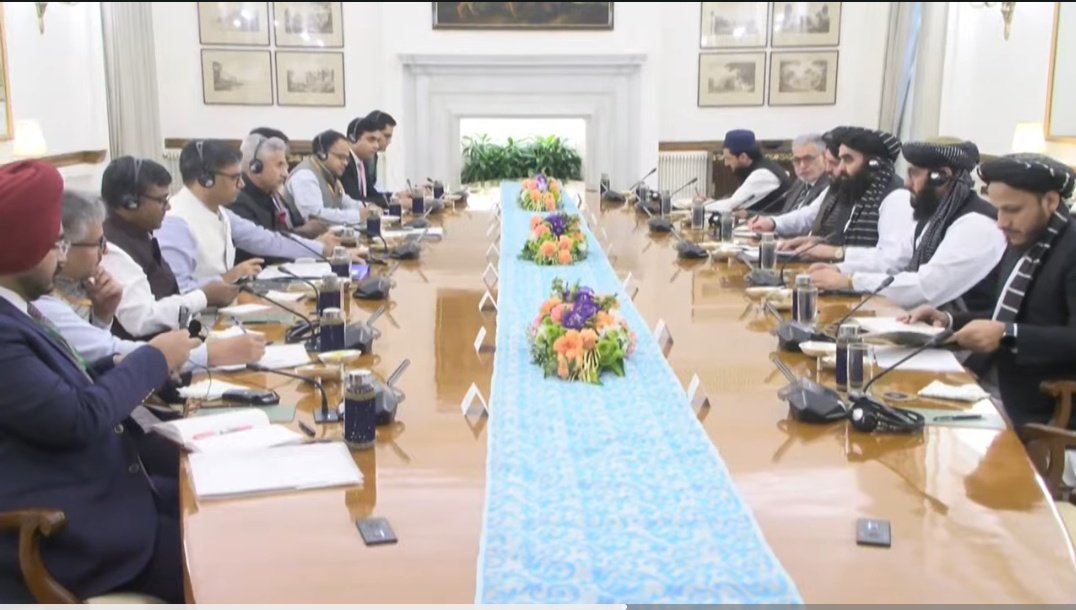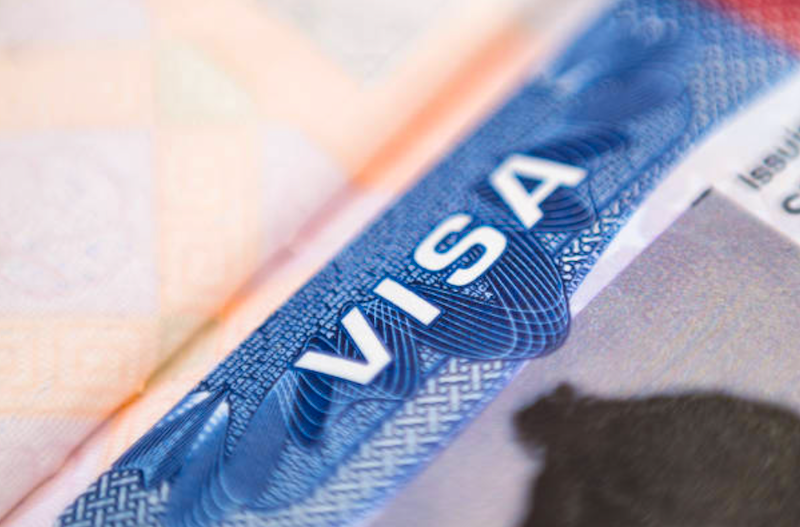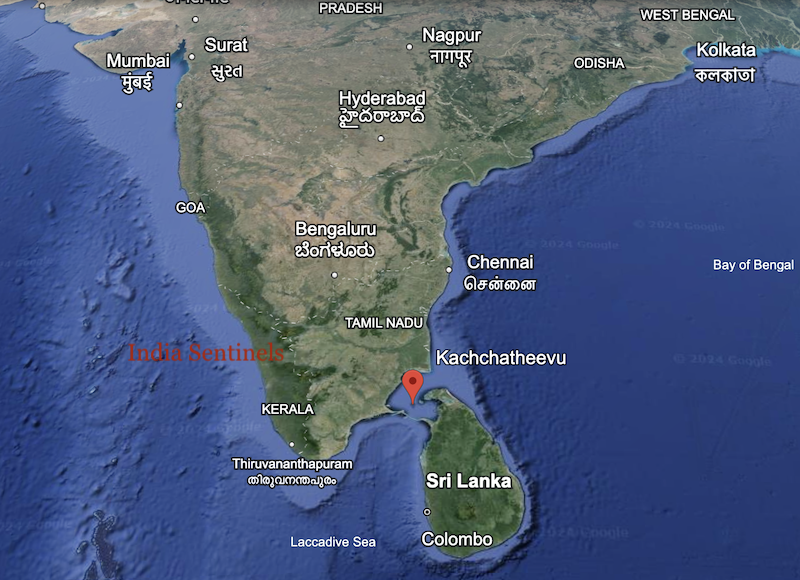 The Katchatheevu island, as shown by the red pin. (Google Earth image)
The Katchatheevu island, as shown by the red pin. (Google Earth image)
New Delhi: A recent Right to Information query by the Tamil Nadu Bharatiya Janata Party president, K Annamalai, has rekindled a decades-old issue of the transfer of Katchatheevu (also spelled Kachchatheevu) – an inhabited island in the Palk Straits – to Sri Lanka. The issue became a raging controversy just ahead of the Lok Sabha election, which starts from April 19, when the prime minister, Narendra Modi, took to social media and accused the Congress party, which was in power at the Centre then, of “callously giving away” Katchatheevu and labelled the RTI findings as “eye-opening”.
Soon after, the foreign minister, S Jaishankar, also chipped in and said India’s first prime minister, Jawaharlal Nehru, had shown indifference towards the island. He then went ahead to say that in 1974, the-then prime minister, Indira Gandhi, ceded the island to Sri Lanka despite legal opinions to the contrary. This decision, Jaishankar said, had irked the-then chief minister of Tamil Nadu, M Karunanidhi. He added that the issue had been “hidden too long from the gaze of the public”.
Diplomats caution against rekindling issue
Prominent former Indian diplomats have cautioned against India’s reconsideration of the 1974 India-Sri Lanka agreement regarding the Katchatheevu island dispute. They emphasized that this renewed focus on Katchatheevu could potentially strain relations between the two nations.
They said the 1974 agreement was a result of complex negotiations involving give and take. Both sides – India and Sri Lanka – had their respective gains and losses.
The settlement aimed to address the contentious maritime boundary issue and provide clarity on fishing activities and hydrocarbon resource exploitation. Former Indian high commissioner to Sri Lanka, Ashok Kantha, said India always maintained a consistent position on the two agreements between New Delhi and Colombo, irrespective of which party was in power.
Additionally, a retired diplomat, speaking to Hindustan Times anonymously, asserted that the island’s transfer to Sri Lanka was based on a bilateral agreement and is a settled matter. He said even the late BJP stalwart and former prime minister, Atal Bihari Vajpayee, despite expressing reservations initially, continued with the agreement during his premiership. The diplomat said the Katchatheevu issue cannot be resurrected, as it was resolved in good faith decades ago.
Furthermore, Nirupama Menon Rao, former foreign secretary and India’s high commissioner to Colombo, highlighted that the recent resurgence of the Katchatheevu issue in India’s internal political domain, especially on the eve of general elections, may be perceived in Sri Lanka as a replay of an old but significant controversy in Tamil Nadu politics.
Talking to media, she said the BJP might have got a tool to attack the opposition on the issue of having “divided” India, but the “retrieval” of the island from Sri Lanka may be “a bridge too far”.
The Katchatheevu Island Dispute
The dispute over Katchatheevu’s ownership predates independence. Colonial-era claims by both India (then the Madras Presidency) and Sri Lanka (British Ceylon) were unresolved. While India argued saying it was historically under the control of the Raja of Ramnad, Sri Lanka pointed to Portuguese presence on the island.
The 1974 agreement aimed to settle maritime boundaries and fishing rights. India, keen on amicable relations with Sri Lanka, agreed to cede the island in exchange for broader fishing access in the Palk Strait. Apart from this, in a subsequent agreement between New Delhi and Colombo, in 1976, India got the Wadge Bank, an area which lies outside India’s maritime territory.
This decision, however, faced criticism from some Indian quarters, particularly in Tamil Nadu, where fishermen felt their livelihoods would be impacted.
The recent controversy can be attributed to several factors. First, there’s a perception that the island holds greater strategic value due to potential maritime resources and its location near busy shipping lanes. Second, the rise of nationalistic sentiments in both countries has led to a re-examination of historical decisions.
Additionally, domestic politics play a role, with political parties in India sometimes using the issue to score points against rivals. And this time, the general election is almost underway in India.
Despite the renewed debate, the official stances remain unchanged. India maintains the 1974 agreement is a settled issue, while Sri Lanka asserts its sovereignty over Katchatheevu.

